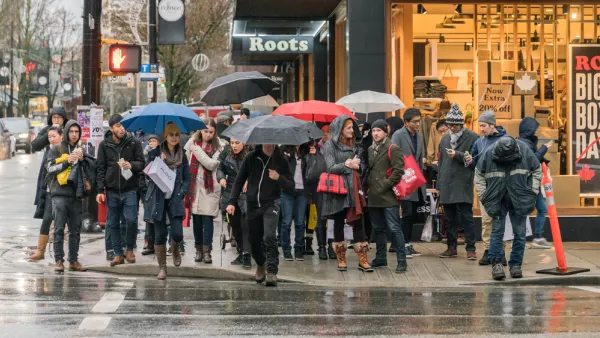It makes more fiscal sense to buy flood-prone land and conserve it than to cover the costs of the damages to developments, according to researchers from the University of Bristol and other institutions.

"Keeping vacant, flood-prone lands free of development could save taxpayers billions," writes Eli Chen, sharing the findings of new research published recently in the journal Nature Sustainability.
The study "found that every $1 spent acquiring undeveloped properties in the 100-year floodplain — which have a 1% chance of flooding in any given year — returns $5 that would be spent on emergency services, flood insurance claims and other flood damage costs if those properties became developed."
"As the number of people living in flood-prone regions like St. Louis is increasing, local governments should consider protecting undeveloped floodplain properties instead of building on them, said Barbara Charry, the floodplain and nature-based solutions strategy manager for the Nature Conservancy’s Missouri chapter."
To find solutions to the challenges of making that vision a reality, the Nature Conservancy is working with the Army Corps of Engineers "to develop a plan to improve floodplain management for the eight municipalities along the lower Meramec River," reports Chen.
Historic floods inundated the Mississippi River watershed during last year's rainy season.
FULL STORY: Cities Buying Empty Lots In Flood-Prone Areas Could Save Taxpayers Money, Study Claims

Analysis: Cybertruck Fatality Rate Far Exceeds That of Ford Pinto
The Tesla Cybertruck was recalled seven times last year.

National Parks Layoffs Will Cause Communities to Lose Billions
Thousands of essential park workers were laid off this week, just before the busy spring break season.

Retro-silient?: America’s First “Eco-burb,” The Woodlands Turns 50
A master-planned community north of Houston offers lessons on green infrastructure and resilient design, but falls short of its founder’s lofty affordability and walkability goals.

Test News Post 1
This is a summary

Analysis: Cybertruck Fatality Rate Far Exceeds That of Ford Pinto
The Tesla Cybertruck was recalled seven times last year.

Test News Headline 46
Test for the image on the front page.
Urban Design for Planners 1: Software Tools
This six-course series explores essential urban design concepts using open source software and equips planners with the tools they need to participate fully in the urban design process.
Planning for Universal Design
Learn the tools for implementing Universal Design in planning regulations.
EMC Planning Group, Inc.
Planetizen
Planetizen
Mpact (formerly Rail~Volution)
Great Falls Development Authority, Inc.
HUDs Office of Policy Development and Research
NYU Wagner Graduate School of Public Service



























